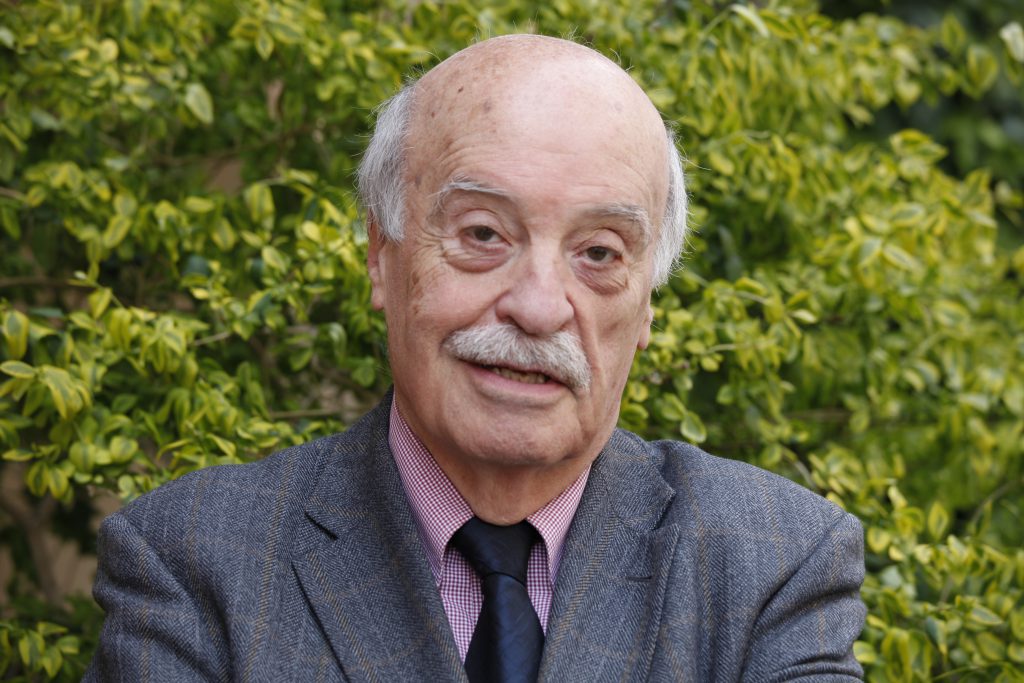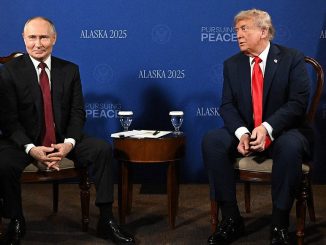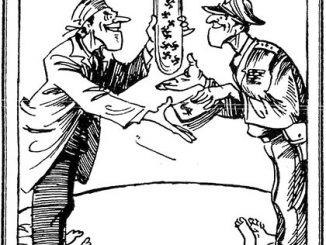Why does the French elite consistently predict the opposite of what will happen? If our editorialists were meteorologists, we would be going out in flip-flops during storms and wearing winter coats in the middle of summer. But rest assured: they don’t predict the weather, only elections. Which is just as well, because no one seems to hold it against them for being consistently wrong. Was Milei supposed to collapse in Argentina? He’s triumphing. Kamala Harris elected in a landslide? Trump is coming back. Brexit impossible? 52% for Leave. At this point, one wonders if we shouldn’t systematically bet against their predictions. It would be statistically more profitable than a savings account. But no: after each fiasco, the same people pick up their pens, their microphones, and their confidence. Because they are never really wrong. It is the people who vote badly.
Even if France is far from being an exception when it comes to wishful thinking, the phenomenon confirms that ridicule does not kill!
Or How the French Elite Systematically Predicts the Opposite of What Happens
Table of Contents
by Joël-François Dumont — Paris, 29 October 2025
Introduction
If our pundits were weather forecasters, we’d be wearing flip-flops in blizzards and parkas in heat waves. But don’t worry: they don’t predict weather, just elections. Which is convenient, since nobody seems to hold them accountable for being systematically wrong. Milei was supposed to collapse in Argentina? He’s thriving. Kamala Harris elected in a landslide? Trump’s back. Brexit impossible? 52% for Leave. At this point, you’d make more money betting against their predictions than investing in Treasury bonds. But no: after each fiasco, the same experts pick up their pens, their microphones, their confidence. Because they’re never really wrong. It’s the people who vote incorrectly.
Javier Milei has just won a triumphant electoral victory in Argentina. His libertarians crushed Peronism in the legislative elections, confirming massive popular support. Problem: our Parisian oracles had predicted his certain downfall. Milei, according to them, could only fail. It was mathematical. Scientific. Obvious.
Obvious like Kamala Harris’s victory, elected in a walk against Trump? Obvious like Carter’s victory over Reagan back in the day? (Spoiler: Reagan won with 489 electoral votes to 49).

Obvious like Brexit that would never pass, like Trump who would never be elected, like Bolsonaro who was a grotesque clown with no future?
Every time, the same scenario: absolute certainty, crushing contempt, stinging defeat. And every time, the same inability to learn any lesson. Because acknowledging error would require humility. And humility is not the strong suit of those who, from their air-conditioned offices, explain to the world what it should think.
Act I: Brexit, or When London Discovers England Exists
June 2016. The British referendum approaches. In the Guardian newsrooms, at the BBC, in Westminster salons, the question doesn’t even arise: Remain will triumph. David Cameron, who called this vote out of tactical arrogance, is certain of it. Barack Obama crosses the Atlantic to threaten the British with a hypothetical commercial “back of the queue.” The IMF predicts immediate recession. Pundits explain learnedly that voting Leave would be economic suicide coupled with moral failure.


Result: 52% for Leave.
The shock is seismic. But it’s not the shock of being wrong. It’s the shock of betrayal. How dare they? At Cambridge, at Oxford, in London’s trendy neighborhoods, nobody – literally nobody – knew a single Leave supporter. Therefore Leave couldn’t exist. It’s the bubble fallacy elevated to methodology: “I don’t know anyone who thinks X, therefore X is impossible.”
What follows is even more delicious: petitions circulate demanding a second referendum “now that people understand.” Understand what exactly? That they were wrong to vote according to their convictions? That the people made a mistake and must vote again until they give the right answer? This condescending paternalism reveals the heart of the matter:
Wishful thinking isn’t a cognitive error, it’s a class posture. The elite wasn’t predicting the result, it was prescribing what should happen in a well-ordered world.
Voters in northern England, those in post-industrial towns nobody ever visits, had other concerns than GDP curves: mass immigration, deindustrialization, the feeling of being strangers in their own country. But these concerns were illegitimate. Therefore invisible. Therefore non-existent.
Until June 23, 2016.
Act II: Trump 2016, or the Bankruptcy of Statistical Scientism
November 2016. America prepares to elect its first female president. It’s a statistical certainty. Nate Silver, the polling guru, gives Hillary Clinton a 71% chance. The Huffington Post: 98.2%. The New York Times multiplies infographics showing all paths to Hillary’s victory – and only one, improbable, narrow, almost theoretical path to Trump’s.
On the night of November 8, CNN journalists are literally in tears on set. Not because they’re losing their journalistic neutrality – they never had it. But because their world is collapsing live on air.
Because this wasn’t a simple polling error. It was the monumental failure of a certain rationality: the one that believes reality can be captured by sophisticated mathematical models, provided you add enough variables and coefficients. But all models rest on assumptions. And the central, unspoken, obvious assumption was: “No sensible person can vote for Trump.”
Yet millions of “sensible” people did. Not idiots, not Nazis: ordinary Americans from Michigan, Wisconsin, Pennsylvania. Workers who had watched their factories move to China. Rural folks tired of being called “deplorables” by a candidate who never set foot in their communities. Voters who were fed up with being told, from East Coast universities, that they were on the wrong side of History.
Wishful thinking operated here on three simultaneous levels:
Methodological: Systematic under-sampling of white working-class voters in polls. Many educated urbanites were surveyed, few non-college rural voters.
Psychological: Radical inability to conceive the intellectual legitimacy of the Trump vote. It wasn’t an alternative political opinion, it was a pathology, a deviance, a moral fault.
Philosophical: Deep conviction that the arc of History naturally bends toward Progress™ (defined by the progressive elite). Therefore Hillary had to win, because she embodied History’s direction. Trump was a temporary anomaly, an accident, not a real possibility.
When the impossible became real, the explanation was immediate: Russian fake news, manipulation, voter ignorance. Never: “We were wrong in our reading of the country.” Always: “The country was wrong in its vote.”
Act III: Bolsonaro 2018, or Tropical Denial
Brazil 2018 offers another textbook case, because the wishful thinking was truly international. Jair Bolsonaro, obscure congressman, professional provocateur, accumulates outrageous statements. He praises the military dictatorship, insults parliamentarians, makes homophobic and misogynistic remarks. For all the European and American press, he’s a fascist clown who can’t win in a “modern” country like Brazil.
Le Monde, Libération, Le Figaro, The Guardian multiply articles appalled by this disturbing but necessarily marginal phenomenon. Parisian editorialists who have never set foot in Brazil (except in Rio for carnival) learnedly explain to Brazilians what they should vote.
Second round result: Bolsonaro 55%, Haddad 45%. Crushing victory.
What had our experts forgotten? Three minor details:
One: The Workers’ Party (PT) of Lula was mired in the biggest corruption scandal in the country’s history – Operation Car Wash. Billions embezzled, the entire state apparatus corrupted. Lula himself in prison.
Two: Crime was exploding in Brazilian cities. Drug traffickers controlled entire neighborhoods. Shopkeepers slept with guns under their pillows. But from Saint-Germain-des-Prés, it’s hard to imagine what it means to see your son recruited by gangs or your shop robbed three times a month.
Three: The PT candidate was Fernando Haddad, perfect São Paulo technocrat, excellent mayor, brilliant intellectual, totally disconnected from deep Brazil. Facing him, Bolsonaro talked about God, family, security and anti-corruption with the subtlety of a bulldozer.
For Parisian salons, Bolsonaro was impossible. For ordinary Brazilians watching their daily lives spiral out of control, he was obvious.
Wishful thinking reveals here its toxic universalism: the idea that “progressive values” (defined in Paris, London or New York) are automatically desirable everywhere on the planet. That the entire world secretly aspires to resemble Paris’s 6th arrondissement. That the same causes produce the same effects, from São Paulo to Stockholm.
Spoiler: no. Societies are diverse. Priorities differ. What’s obvious in Paris isn’t necessarily so in Brasilia. But admitting that would require renouncing one’s imperialist universalism. Impossible.
Act IV: Australia 2019, Morrison’s Miracle
May 2019. Australia prepares to elect a new government. Labor’s Bill Shorten is predicted to win by all polls. All. Without exception. The Labor Party runs a campaign centered on climate, tax justice, social rights – the entire contemporary progressive catechism. Mainstream media, universities, celebrities: all pro-Shorten.
Scott Morrison, the outgoing conservative prime minister, is dull, uncharismatic, expected to lose. His strategy is simple and blunt: talk about jobs, concrete taxation, the material concerns of Queensland mining voters.
On election night, ABC (public broadcaster) journalists are livid. Morrison won. Against all predictions. It would be called “Morrison’s miracle.”
Miracle? Or simply reality that nobody wanted to see?
Wishful thinking encounters here what could be called “the chattering class problem.” The people who talk loudest – journalists, academics, activists, artists – aren’t representative of the population. But their media visibility creates an illusion of majority. Sociologists call this the “spiral of silence”: those who think differently stay quiet, for fear of social judgment. Their silence creates the impression of a consensus that doesn’t exist.
Queensland miners didn’t write op-eds in newspapers. They didn’t tweet. They didn’t sign petitions. They voted in silence. And in masses.
Meanwhile, in Sydney and Melbourne, in trendy neighborhoods, everyone was certain of Labor’s victory. Because everyone around them voted Labor. Echo chambers produced blindness.
Act V: The Greek Referendum, or When Brussels Explains Athens to Itself
July 2015. Greece is on the brink of financial collapse. The European Union and IMF propose (impose) a drastic austerity plan. Alexis Tsipras, the Greek prime minister, decides to hold a referendum: do Greeks accept this plan?
In Brussels, in Frankfurt, in Paris, the question doesn’t even arise. Of course the Greeks will vote “Yes.” How could a people rationally refuse aid (even if conditional, even if humiliating) when on the edge of the abyss? It would be economic suicide. Therefore impossible.
European capitals orchestrate a massive fear campaign. Greek banks are closed. ATMs rationed. The message is clear: vote “Yes” or face apocalypse.
Result: “No” at 61.3%. A global slap in the face.
This is perhaps the purest example of technocratic wishful thinking. Europe had reduced the question to an accounting equation: “Austerity = Fiscal Rigor = Economic Salvation.” In this logic, voting “No” was irrational. A sin against economic reason.
Except the Greeks weren’t voting on an Excel spreadsheet. They weren’t voting on debt/GDP ratios. They were voting on national dignity. On the feeling of being treated as second-class European citizens. On years of daily humiliation, slashed pensions, young graduates serving coffee to German tourists.
Tsipras had asked them a simple question: “Do you want to continue being despised?”
They answered overwhelmingly no.
The best part of this story? Three days later, Tsipras capitulated and signed with Brussels an agreement even harsher than the one rejected by referendum. Betrayal? Realism? Doesn’t matter. Brussels’s wishful thinking had failed in its prediction, then triumphed through brute force. But the original blindness remained: the inability to understand that a people might vote with their gut rather than with IMF models.
The Common Matrix: Anatomy of Systemic Blindness
All these examples, from London to São Paulo, from Detroit to Athens, reveal an identical structure. Wishful thinking isn’t an accident, it’s a system. Let’s dissect its mechanisms:
1. The Social Bubble: Confusing Your Living Room with the World
- First level: echo chambers.
Media, political, and academic elites live in the same neighborhoods, frequent the same places, read the same newspapers, send their children to the same schools. This social inbreeding produces intellectual inbreeding.
When a Le Monde journalist doesn’t know anyone who would vote for Milei, he concludes that Milei is marginal. Not that he is in a bubble. The representativeness of his social sample is never questioned.
It’s confirmation bias squared: not only do you interpret facts according to your beliefs, but you never encounter facts that could contradict your beliefs.
2. Class Contempt: The Deviant Voter as Pathology
- Second level: moral judgment.
Voting Brexit, Trump, Bolsonaro or Milei isn’t an alternative political opinion. It’s a fault. A deviance. An intellectual or moral pathology.
Trump voters? “Deplorables” (per Hillary Clinton). Brexit voters? Nostalgic old people who were manipulated. Bolsonaro voters? Fascists or morons. Milei voters? Economic imbeciles.
This moral disqualification has a precise function: it dispenses with listening. If the other is morally inferior, why waste time understanding their reasons? You diagnose (populism, fake news, manipulation), you don’t dialogue.
Class contempt allows maintaining one’s belief system intact. Recalcitrant facts aren’t data to integrate, they’re anomalies to explain through others’ ignorance or malevolence.
3. Arrogant Universalism: Paris as World Capital
- Third level: cultural imperialism.
The values of the Western progressive elite (LGBT rights, ecology, multiculturalism, free trade, European integration, etc.) are presumed universally desirable.
If a people votes against these values, it’s not that they have other priorities or a different worldview. It’s that they “haven’t understood.” That they’re behind. That they need to be educated.
This neo-colonial posture is fascinating: territories are no longer colonized, consciousnesses are. The good vote is one that converges toward Western elite values. The bad vote is one that diverges.
Argentines who elect Milei supposedly haven’t understood that libertarianism leads to catastrophe. British who vote Brexit supposedly haven’t understood that Europe means peace. Americans who elect Trump supposedly haven’t understood that isolationism is dangerous.
Note the constant: “they haven’t understood.” Never: “we haven’t understood why they vote this way.” Incomprehension is always located on the voter’s side, never on the analyst’s side.
4. Politicization of Morality: When Voting Becomes a Virtue Test
- Fourth level: transforming political choice into moral test.
An election is no longer an arbitration between divergent interests or visions. It’s a collective examination of conscience. There’s the good camp (progressive, open, modern) and the bad camp (reactionary, closed, archaic).
This moralization produces a perverse effect: it prohibits strategic thinking. If voting Trump is wrong, then it’s impossible to understand why reasonable people do it. You remain stuck in moral stupefaction.
Result: you don’t see “immoral” victories coming. They’re literally unthinkable. The mental framework that would allow anticipating them (understanding voters’ concrete interests, their material frustrations, their existential fears) has been short-circuited by moral judgment.
5. Inability to Lose: After Defeat, Fault Always Lies Elsewhere
- Fifth level: refusal to learn.
After each defeat, the same scenario: it’s not the predictions that were wrong, it’s reality that went badly.
After Brexit: “The old stole the young’s future.” (Not: “We misunderstood a large part of the population’s concerns.”)
After Trump: “Russian fake news manipulated voters.” (Not: “We neglected Midwest deindustrialization.”)
After Bolsonaro: “Evangelicals instrumentalized fear.” (Not: “We underestimated the security crisis and anti-corruption frustration.”)
This systematic externalization of failure guarantees no lessons will be learned. And therefore that you’ll be wrong again next time. This is exactly what’s happening with Milei today.
The French Specificity: Contempt Elevated to Philosophy
These five mechanisms exist throughout the West. But France adds an extra dimension: the theoretical intensity of wishful thinking. Elsewhere, it’s predictive incompetence. In France, it’s a philosophy of History.
When the New York Times is wrong about Trump, it’s embarrassing. When Libération is wrong about Milei, it’s because Argentina betrayed History’s direction. Nuance.
France is the country of Descartes, the Enlightenment, universal Reason. A country that made a Revolution in the name of abstract principles and has since claimed to hold political truth. This French exception produces unique intellectual arrogance.

The very term “populism” is revealing. In France, it doesn’t designate a political style (direct appeal to the people, criticism of elites). It designates “what the people want when what they want is wrong.” It’s an elitist concept that fundamentally refuses the legitimacy of divergent popular aspirations. A Frenchman never says: “Argentines elected Milei.” He says: “Argentina succumbed to populism.” Note the passivity: the people don’t choose, they “succumb.” They’re victims of an ideological disease.
This interpretive grid allows explaining everything without understanding anything.
Javier Milei — Photo © Ministry of Foreign Affairs of Japan
Brexit? Populism. Trump? Populism. Bolsonaro? Populism. Milei? Populism. The concept becomes an intellectual black hole: it absorbs all phenomena one refuses to analyze.
In other countries, elites know they’re an elite. In France, the elite believes it is the people. It speaks “in the name of” the people, “for” the people, never against the people. When the actual people vote differently than they do, it’s not that the elite was wrong about the people. It’s that the people were wrong about themselves.
This schizophrenia reaches delicious heights. The very people who denounce the “contempt of elites” are offended when the people vote “wrong.” The same people who demand we “listen to the citizens” explain that those citizens don’t understand their own interests. The same people who celebrate “democracy” sometimes wish the people would vote differently.
Milei and the Others: Genealogy of a New Fiasco
Let’s return to Milei, our starting point. His recent electoral triumph in Argentina fits perfectly into this lineage.

Elected president in November 2023 (already against all odds), Javier Milei has just won the legislative elections with his party La Libertad Avanza. A plebiscite. The Argentines, despite having endured economic reforms that are brutal, to say the least, are renewing their confidence in him.
Would Javier Milei have eaten the lion? Illustration © European-Security
Our French augurs had predicted it all: Milei was going to collapse. His libertarian reforms would lead to social catastrophe. The people would revolt. The Peronists would return triumphantly. It was written.
Except, no.
Why were they wrong? Because they analyzed Milei using their European mindset. “‘Cutting public spending = social catastrophe = popular revolt.’ A valid equation in France, perhaps. In Argentina? Not necessarily.
Because Argentina was emerging from decades of Peronism, rampant inflation, systemic corruption, and stifling patronage. The Argentine state was not a French-style welfare state. It was a machine for redistributing privileges among political clienteles, while inflation stole the savings of the middle class.
Milei said: “I am going to destroy this machine.” And a majority of Argentines replied: “Do it.”
But understanding that would require understanding Argentina. Not the fantasized Argentina (tango, Evita, romantic leftism), but the real Argentina. The one where 40% of the population lives below the poverty line. Where inflation reached 211% in 2023. Where corruption is so systemic it doesn’t even shock anyone anymore.
Our Parisian experts don’t know that Argentina. They know the one from their books, their movies, their ideological prejudices. And so they get it wrong. Again. Always.
Conclusion: The Eternal Return of the Error
Let’s summarize: Brexit, Trump, Bolsonaro, Morrison, the Greek referendum, Milei. Six massive errors in less than a decade. All in the same direction: the progressive elite predicting the victory of their values, and the people voting otherwise.
At this point, it’s no longer bad luck. It’s a system. A system of willful blindness, embraced contempt, and intellectual arrogance.
And here is the most fascinating part: nothing changes. After every fiasco, the same experts take up the same posts, in the same media, with the same confidence. No consequences. No accountability. No sanctions (neither professional nor even symbolic).
Imagine a meteorologist who was systematically wrong. Who announced sunshine before every storm. He would be fired. Our political seers, however, have jobs for life.
Why? Because they aren’t making predictions. They are making prescriptions. They don’t announce what will happen. They decree what should happen in a world that conforms to their values.
When reality deviates, it’s not their model that’s wrong. It’s reality that has gone off the rails.
This posture is intellectually untenable. But it is very comfortable psychologically. It allows them to never doubt. To never question their worldview. To never interrogate their class privileges.
French-style wishful thinking isn’t a bug. It’s a feature. It is the strategy by which an elite maintains its symbolic domination even when it loses the electoral battle. Because in the end, winning or losing elections matters little. What matters is maintaining the monopoly on intellectual legitimacy. It is continuing to define what is “modern” or “archaic,” “open” or “closed,” “progressive” or “reactionary.”
Milei can win every election in Argentina. For our editorialists, he will remain an accident of history. Trump can be elected twice. He will remain an anomaly. Bolsonaro may have governed Brazil. He will remain a clown.
And the next time an anti-system candidate emerges somewhere in the world, our seers will pronounce their verdict: “He cannot win.”
And they will be wrong. Again.
Because they would rather be wrong while maintaining their haughtiness, than be right by accepting to step down from their pedestal.
French-style wishful thinking is not a methodological error. It is a class choice. And that choice, clearly, is non-negotiable.
The voters of the world can continue to vote “wrong.” Our experts will continue to explain to them that they are wrong. It is a division of labor that seems to satisfy everyone: the people govern, the elite scoffs. A balance that is, in the end, quite stable.
Until the day…
But that is another story. One that our seers, naturally, will not see coming.
Joël-François Dumont
See Also:
- « Our Prophets Are Always Wrong: A Tribute to French Wishful Thinking » — (2025-1029)
- « Nos devins se trompent toujours : Éloge du « wishful thinking » à la française » — (2025-1029)
- « Unsere Propheten irren sich immer: Eine Hommage an französisches Wunschdenken » — (2025-1029)
- « Nuestros adivinos siempre se equivocan: Elogio del «wishful thinking» a la francesa » — (2025-1029)
In-Depth Analysis:
If our pundits were weather forecasters, we’d be wearing flip-flops in blizzards and parkas in heat waves. But don’t worry: they don’t predict weather, just elections. Which is convenient, since nobody seems to hold them accountable for being systematically wrong. Milei was supposed to collapse in Argentina? He’s thriving. Kamala Harris elected in a landslide? Trump’s back. Brexit impossible? 52% for Leave. At this point, you’d make more money betting against their predictions than investing in Treasury bonds. But no: after each fiasco, the same experts pick up their pens, their microphones, their confidence. Because they’re never really wrong. It’s the people who vote incorrectly.














